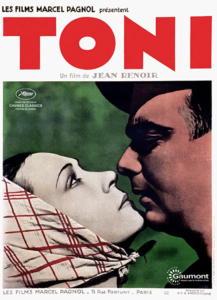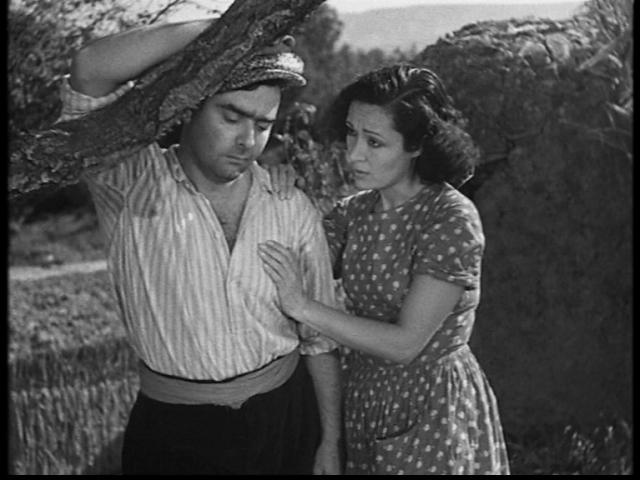“Forget her? Why not try grafting a plano leaf on to an olive tree?”
|

Synopsis:
An Italian immigrant (Charles Blavette) in love with a Spanish washerwoman (Celia Montalvan) ends up marrying his landlady (Jenny Helia) instead when Josefa (Montalvan) is seduced by the local quarry foreman (Max Dalban). But Toni (Blavette) remains dissatisfied in his marriage, and is determined to rescue Josefa from her unhappy fate.
|
|
Genres, Themes, Actors, and Directors:
- French Films
- Jean Renoir Films
- Love Triangle
Review:
Considered by many to be an early forerunner of Italian neo-realism, Jean Renoir’s Toni (co-directed by Luchino Visconti) holds a special place in cinematic history. In addition to the use of many non-actors, most scenes are shot either outdoors in the southern French countryside (in a quarry, under trees on hills, along vineyard paths), or in authentic local buildings, and the effect is palpable: one immediately gets the sense of being immersed in this particular niche of early 20th century French immigrant society. The story — based on a real-life event — involves murder and sacrifice, but never comes across as overly melodramatic; rather, it’s easy to believe that these particular characters would act in just the way they do. While not quite the masterpiece that some of Renoir’s earlier and later films would prove to be, Toni is of note for those interested in the evolution of European cinema.
Redeeming Qualities and Moments:
- Effective use of realistic locales

Must See?
No, though it’s certainly worth a look for its historical importance.
Links:
|
One thought on “Toni (1935)”
First viewing. Not must-see.
It’s an ok film – and I can understand those with a particular interest in French films (or Renoir films specifically) wanting to check it out for historical reasons. But I can’t say it does much for me personally.
It’s watchable, I wouldn’t say I was bored. The use of non-actors is more successful than one might expect but it’s still a bit of a drawback.
My genuine interest really only piqued in the last ten minutes or so. The conclusion is done particularly well – Renoir steps up to the plate with some fine tension, aided by some precise editing.